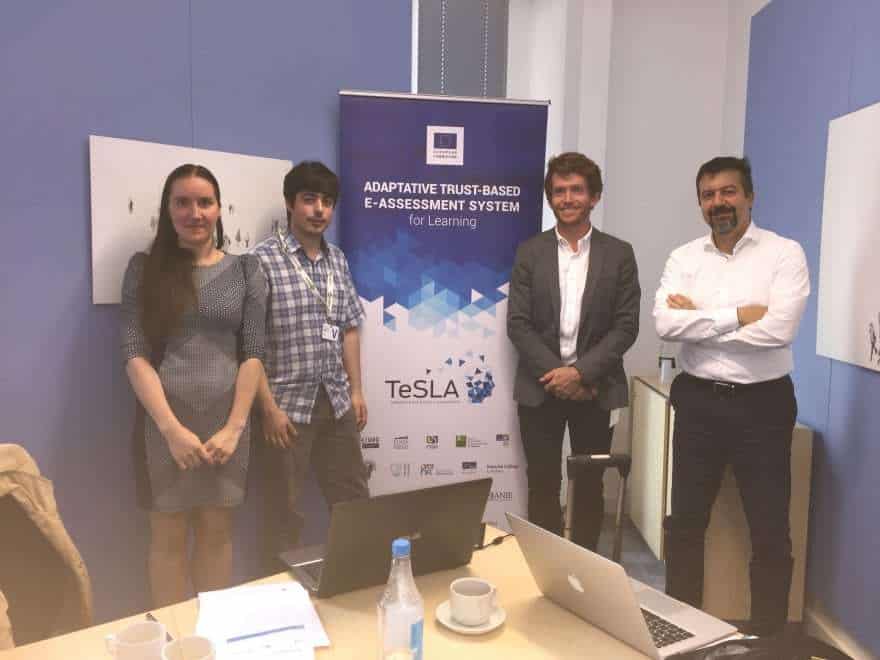The Rector of the University of Nicosia, Professor Philippos Pouyioutas has completed a review/evaluation of the pilot integration of the TeSLA e-assessment/e-invigilation system in the Open University of UK (OU) www.openuniversity.edu, a leading distance learning provider worldwide, with more than 173,000 online students.
The evaluation process took place at the premises of OU at Milton Keynes, 4-5 June 2018. The Rector of the University of Nicosia chaired the Evaluation Committee which comprised of Dr Cormac O’Keeffe, technological expert from France and Director of YESNYOU (www.yesnyou.com/en), specialising in e-learning and e-assessment, Ms Asnate Kazoka, Quality Assurance Expert from the Latvian Higher Education Quality Assurance Agency, and David Montpeyó Garcia-Moreno, graduating PhD student from the Autonomous University of Barcelona.
The TeSLA project (www.tesla-project.eu) is funded by the European Commission and has resulted in a software system that supports e-assessment and e-invigilation, utilizing purpose developed state-of-the-art software for student authentication (face and voice recognition and keystroke dynamics) and authorship (forensic analysis and anti-plagiarism). At the same time, TeSLA has incorporated the European Standards and Guidelines for Quality Assurance in Higher Education and has helped Universities who have adopted it to re-engineer their e-learning and e-assessment methods. TeSLA can be integrated in most e-learning platforms available, including Moodle, and will be soon available as a commercial product. The system has been developed taking into account quality assurance agencies in education, privacy and ethical issues and educational and technological requirements throughout Europe.
TeSLA is co-ordinated by the Open University of Catalunya (OUC). Partners include the European Network for Quality Assurance Agencies (ENQA), the Catalan University Quality Assurance Agency (AQU), the European Quality Assurance Network for Informatics Education (ENQANIE), the Open University of UK (OU), the Open University of Netherlands (OUNL), the University of Jyväskylä (JYU) of Finland and other conventional universities offering on-line education. The technical part of the project for the development of the software is led by OUC with the participation of Imperial College UK and other specialized research and innovation companies carrying out state-of-the-art research in authentication and authorship.
Necessary Pre-requisites for Online Education – Continuous Assessment, e-Assessment and e-Invigilation
According to Rector Pouyioutas, “one key outcome of this review is that on-line education can only be truly on-line, if and only if on-line e-assessment and e-invigilation is adopted, for both continuous and final exam assessment. Thus, Universities should be encouraged to adopt e-assessment and e-invigilation, whereas Quality Assurance Agencies should provide the evaluation framework for accepting and evaluating e-assessment and e-invigilation”.
Professor Pouyioutas also points out that “a second equally and even more important (known) outcome is that online education is moving away from using written final exams for student assessment, especially for master degree programmes. Many universities offering online education, use continuous assessment (coursework, projects, portfolios, etc.) instead of written final exams, to assess master degree students. This is line with the view that written final exams are not the best method/approach for evaluating student knowledge, skills and competencies, and thus serve little purpose in employing them especially at postgraduate level. Quality Assurance Agencies are therefore asked to provide an evaluation framework whereby on-line education is not hindered by requiring face-to-face invigilated exams”.

